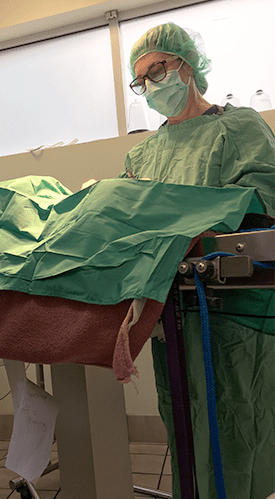Pet Spay and Neuter in Raleigh, NC
Reproduction for pets seems like a natural choice, and while it is, it could also be very costly for you, and very exhausting for your pet. Your pet’s reproductive organs produce hormones that drive them to seek a mate, which is not only a frustrating experience for them but for you, too. What’s more is that these hormones put them at risk of deadly cancers and diseases. Spay and neuter surgeries reduce and even eliminate the risk of these diseases as well as grant your pet behavioral benefits.

Helpful
Tip
If you're considering a spay or neuter surgery for your pet, make an appointment with your veterinarian to go over the best timeline for the surgery. Different pets have different needs!
Details into the Benefits of Spay and Neuter Surgeries
Both male and female pets benefit substantially from a spay or neuter surgery. Some of the benefits include:
Male Pets
- Reduced desire to roam to find a mate
(which could put them in harm’s way) - Less likely to exhibit urine-marking or mounting behavior
- Reduced aggressive behavior
- Reduced risk of prostate problems
- Elimination of testicular cancer
Female Pets
- Reduced desire to roam to find a mate
(which could put them in harm’s way) - Less likely to exhibit urine-marking behavior
- Reduced risk of mammary gland tumors
- Elimination of uterine and ovarian cancers
- No risk of pyometra, a serious uterine infection

The Importance of Timing
The timing of spay and neuter surgeries is a crucial element. For instance, females have an even further reduced risk of mammary gland tumors if they are spayed before their first heat cycle. For kittens, this can be as early as four months of age. On the other hand, larger breed dogs often have developmental problems if they are spayed or neutered before they are done growing. Therefore, surgery may wait until they’ve reached skeletal maturity between 12 or 18 months of age. Each pet is different, and our veterinarians will discuss your pet’s unique situation with you in-depth.

